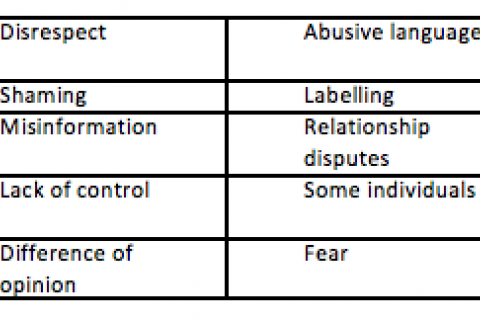
Heavy M.E.T.A.L Group
Call David: 0401 766 877
- Home
- About Us
- Services
- Bookings
- Resources
- Contact Us
Heavy M.E.T.A.L Group
Call David: 0401 766 877

Over the last 20 years of working with men and facilitating men’s behavior change programs often I have heard men say after they have had an explosion, “man I would not have lost it, if she didn’t press my buttons” or “I would not have lost it if they did not triggered me..”. The problem with using these statements you are suggesting someone else is responsible for your triggers and you are justifying your behavior. Remembering if your anger outburst scares or intimidates someone; it’s a form of abuse. In this article the term “my triggers” and “push my buttons” are the same.
The first thing we need to realize is no one “presses my buttons” or “pushes my buttons”.
Rather than handling anger issues after the fact, or after the “Explosion” it is far better to prevent
an abusive outburst from happening by recognising when you are in the “Build Up” phase.
To avoid the “Explosion”, one would have to be intentionally aware of triggers that cause us to erupt. Therefore, to cut off the “Build Up” process in its early phase, a good understanding of your own triggers is essential.
There are many ways we can be triggered, and these triggers are usually different from person to person based on individual life experiences. For instance, if you were bullied significantly during your childhood, your triggers will be intense towards someone who is controlling or threatening.
Here are common triggers to driving the Build-Up phase:
By knowing your triggers, you may anticipate your “Build Up” and therefore avoiding an angry outburst.
Triggers are ways that someone can experience a complete emotional hijacking. In some cases; adults who have had certain volatile childhood experiences can become very explosive when those situations are recreated in their current lives.
It is important for us to realize what our triggers are and to be aware of what issues in our lives promote a high alert and drive us to react to the situation; generally, it is associated with one’s threat to power and control over a situation or over others. Once we identify our triggers, it is beneficial to determine why these triggers cause such an emotionally charged response. It may be helpful to write a list of your triggers as you begin to recognize them and the ways you have dealt with them in the past so you can be prepared to take control of them and choose to respond to them in a more positive proactive way which puts a stop to your “Build Up”.
You can anticipate your Build Up by understanding the underlying reasons for your triggers; this will allow you to anticipate potential abusive explosions. When we understand our triggers, we can sit with the “Build-Up” (the “hot seat’ moment) and provide an intentional response, hopefully aborting the episode. If we are attuned and aware of our triggers, we are better able to predict our own response and make Choices not to react in an abusive manner.
This means that we will be:
Being more in charge of your reaction during the Build-Up comes from the self-control you maintain in recognising your Build Up signs and in knowing and understanding your triggers. Managing your thoughts and emotions enables a better opportunity for a positive response rather than an abusive reaction.
It may sound somewhat simplistic; our world would be a totally different place if we were aware of what triggers our abusive outbursts. Then, we can put a strategy in place, like “Time Out” that would permit us to rethink and to make Assessments, Choices and Execute the Choices which keep us in a much calmer place.
Would you like to become the master of your triggers? Download a copy of our trigger worksheet by clicking this link:
Contact us to book an appointment or discuss the services we offer
Please LIKE our Facebook page for regular updates www.facebook.com/heavymetalgroup